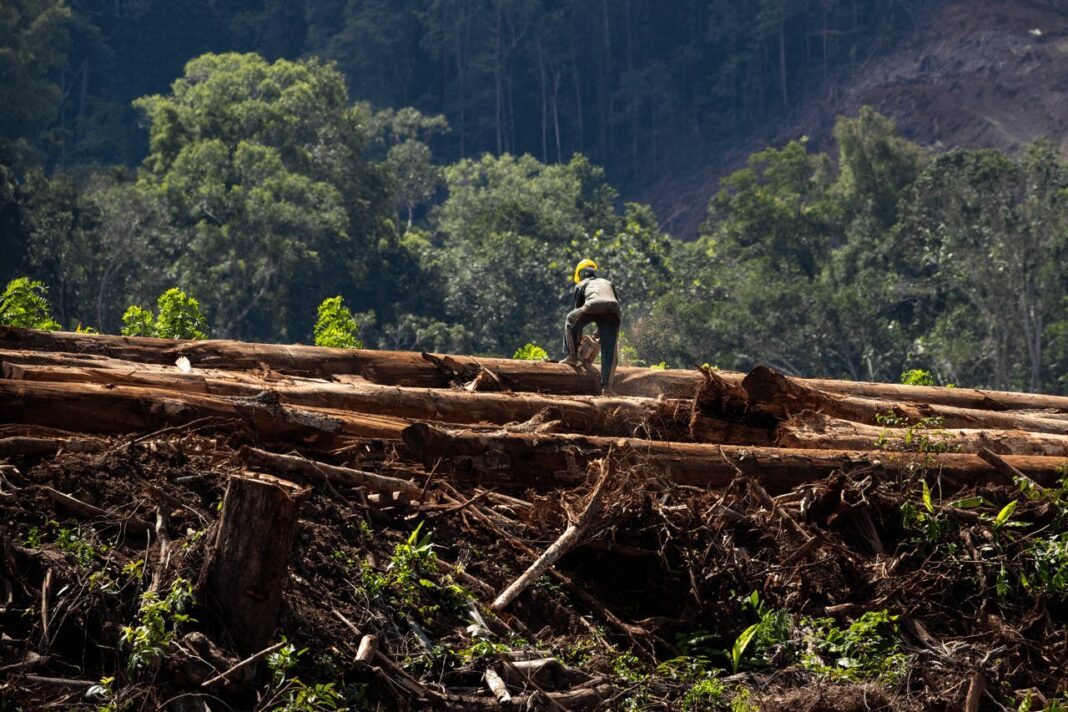A new report has expressed concerns about the safety of Southeast Asia’s tropical forests following the rise of the wood-to-energy sector.
The report – ‘Unheeded Warnings: Forest Biomass Threats to Tropical Forests in Indonesia and Southeast Asia’, looks at how energy policies in Indonesia, Japan and South Korea push what it calls a “false climate solution”,
The document is co-published by organisations such as Earth Insight, Auriga Nusantara, and Forest Watch Indonesia. It states that more than 10 million hectares of intact Indonesian tropical forests are at risk due to the demand for wood chips and pellets for biomass plants.
The report, reviewed by the Japan-based International Tropical Timber Organisation, further states that threats to tropical forests span over 127 key biodiversity areas. It adds that 400,000 ha of undisturbed forests fall within energy plantation zones.
According to the text, haul zones of wood chip mills and co-firing plants could further endanger over 4.1 million ha of orangutan habitat.
Timer Manurung, executive director of Indonesia-based conservation and ecological group Auriga Nusantara, said: “Japan and South Korea are driving the market for biomass plantation expansion. At the same time, the government’s co-firing policy could increase woody biomass consumption by 8400%, posing an enormous threat to remaining forests and local communities.
“Going down the path of biomass will not only increase greenhouse gas emissions but also undercut nature-based solutions that are crucial for addressing the climate crisis,” Manurung added.
The report’s field investigations in the the Indonesian province of Gorontalo revealed large-scale deforestation, with more than 1000 ha of primary forest cleared in the past year for wood pellet exports to South Korea and Japan.
Local communities are beginning to voice opposition to these activities, concerned about the devastating environmental and social impacts.
Indonesia’s energy transition plans, which aim to generate 19.7 TWh of energy from woody biomass by 2025, are a central driver of deforestation.
More than 60% of this energy will come from co-firing wood with coal, with forest concessions designated as ‘energy plantations’ expected to supply half of the necessary biomass. This could destroy forests at an industrial scale, with deforestation rates potentially reaching 2.1 million ha a year.
Countries such as Japan and South Korea are major contributors to this demand. In 2021, they purchased more than 99% of Indonesia’s wood pellet exports. Their subsidy programs have dramatically increased the production of wood pellets in southeast Asia, encouraging further forest destruction.
South Korea’s renewable energy policies alone have expanded the production of wood pellets from 20,000 tonnes in 2012 to 330,000 tonnes by 2021, while Japan is projected to become the world’s largest consumer of wood pellets.
Experts warn that burning wood for energy is not the sustainable solution it claims to be. While biomass is often carbon-neutral, this classification ignores the carbon emissions from deforestation and wood combustion.
Biomass power plants emit up to 60% more CO2 per megawatt-hour than modern coal plants. Moreover, the carbon debt — the time it takes for regrowth to offset these emissions — ranges from 40 to 900 years, depending on the forest type.
Amid this growing crisis, local leaders and environmental advocates call for immediate action to protect the region’s forests and communities.
“Japan and South Korea are driving the market for biomass plantation expansion,” Timer Manurung said. “At the same time, the government’s co-firing policy could increase woody biomass consumption by 8400%, posing an enormous threat to remaining forests and local communities.”
Environmental groups are urging Southeast Asian governments to reconsider their reliance on biomass and invest in sustainable energy solutions.
Tyson Miller, executive director of Earth Insight, stressed that the region’s decision-makers should heed scientists’ warnings and prioritise renewable energy sources like wind, solar, and tidal power.
“Going down the path of biomass will not only increase greenhouse gas emissions but also undercut nature-based solutions crucial for addressing the climate crisis,” he said.






